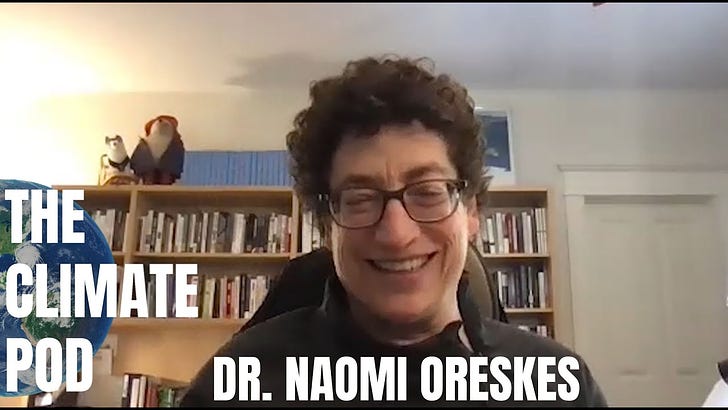We Can’t Stop Assigning Blame For Climate Inaction
Recent news on fossil fuel companies has been encouraging but our approach to the climate crisis requires us to continue to cut through the propaganda and place necessary blame
The past couple of weeks haven’t been great for Big Oil. On May 26, three oil majors - Shell, Chevron, and ExxonMobil - were all reprimanded for their plans to keep extracting and burning fossil fuels. ExxonMobil and Chevron got their blowback from shareholders, while the Royal Dutch Shell company received their comeuppance courtesy of the Netherlands’ Supreme Court. Investors for ExxonMobil elected company directors that say they’ll lobby for at least some semblance of emissions reduction goals and 60% of Chevron shareholders passed a nonbinding resolution to develop a similar plan. But the most pressing obligation was levied on Shell, which is now legally obligated to cut carbon emissions by 45% from 2019 levels by 2030. On a single day, three major fossil fuel companies were told the status quo could not continue.
Dr. Naomi Oreskes, the Harvard University Professor of the History of Science and famed co-author of “Merchants of Doubt”, has been following these fossil fuel companies emit carbon dioxide with impunity for decades. Now, she sees the tide turning, especially with the Shell decision. “This is really a landmark law case because it’s saying ‘no, you cannot do that,’ Oreskes said on The Climate Pod. “This is a pollutant and you can’t just dump CO2 into the atmosphere the same way we can’t just dump mercury in the atmosphere.”
Investor pressure and internal reform at fossil fuel corporations can lead to meaningful cuts in emission reductions, but nothing will beat regulatory mandates and legal consequences. We know the companies that cause the problem. And we have even more evidence of the propaganda deployed by the same corporations to obfuscate those facts. Oreskes and her research partner Dr. Geoffrey Supran, recently published a well-timed study, “Rhetoric and frame analysis of ExxonMobil’s climate change communications”, which examines the company's decades-long campaign to sow climate doubt by stressing scientific uncertainty on climate change and placing blame on individuals for using fossil fuels. Their research details the rhetorical strategy that has effectively muddied up the moral clarity on the unnecessary nature of fossil fuel proliferation and who’s actually pushing it.
Still, promoting misinformation and lobbying lawmakers to enforce the status quo requires capital and Oreskes said the decision by ExxonMobil shareholders to pass a resolution to get transparency on such resource expenditures may have long-term consequences. “The reporting on lobbying activities is hugely important because ExxonMobil wants to say that we’re just an honest company giving the consumer what they want, because they spend huge amounts of money and they’ve been very non-transparent about how much.” she said. “At least $500M has been spent by fossil fuel lobbying to prevent action on climate change, to prevent regulatory support for renewable energy, to prevent grid integration... Massive amounts of lobbying to the fossil fuel industry to prevent change.”
Change is difficult enough. Absent moral clarity on the actual problem and necessary solutions, we’ve seen an inadequate response to date. “We are in a political interval of predatory delay,” Alex Steffen, writer, futurist, and creator of the fantastic new project The Snap Forward, told The Climate Pod recently. “It’s extremely well documented that oil companies, coal companies, car companies, etc, have made a conscientious effort, almost since the very moment we’ve understood the problem to prevent action from accelerating, to deny the science, to downplay the consequences, to promote division between various groups, to emphasize the cost of change but never the cost of inaction...If we can in fact shorten that interval, if we can undermine predatory delay by acting across a broad front of efforts. Then we can start seeing change happening not only more quickly than we’re used to discussing, but to a far greater benefit for more people.”
The challenge going forward is to keep assigning this blame so real consequences continue. Every boardroom, shareholder meeting, court proceeding, and Congressional session must continue to hear the facts from more voices at increasingly louder volumes. Without it, we are denied a society we choose. It’s the great irony Oreskes sees as she has looked back at the history of ExxonMobil’s fossil fuel extraction and efforts to place responsibility on individuals. “This is a company that has done everything in their power to block action. And to make it impossible for me to even have other choices. They have done everything to sustain the fossil fuel economy so that most of us have very few choices.”
***
To hear our full conversations this week with Dr. Naomi Oreskes, Alex Steffen, as well as a wonderful conversation with Evlondo Cooper, Senior Writer For Media Matter’s Climate and Energy Program, on broadcast news’ failing coverage on environmental justice issues, download The Climate Pod on iTunes, Spotify, and Stitcher.


